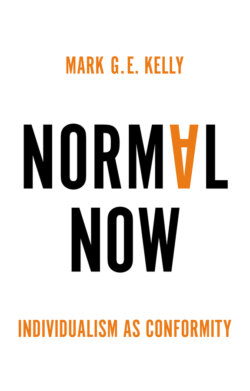Читать книгу Normal Now - Mark G. E. Kelly - Страница 8
1 Genealogy
ОглавлениеIn this chapter, I outline the history of normality, before moving on in the next chapter to detail the more recent development of what I call our ‘new norms’, and then, in the rest of the book, detailing how these have played out in different social realms.
I will throughout this book use the word ‘norm’ (and hence the derived adjectives ‘normal’ and ‘normative’) in a highly specific way, as I will now explain. This usage of the term derives from the work of two twentieth-century French philosophers, Georges Canguilhem and, following him, Michel Foucault. They in turn derive their use of the term ‘norm’ from the study of the actual history of norms.
This usage of the term then has a strong etymological basis, but there are manifold senses in which the term is used today that I am not employing here, even if these senses also do constitute part of the broad history of the use of the term that I am alluding to. I therefore do not use ‘norm’, as sociologists do, to mean any unwritten social convention. Nor do I use it to mean a formal rule or average; indeed, I precisely mean by norm that which is neither a formal rule nor an average.
My thesis here is sui generis, but might be said to intersect with (which is to say, potentially either dovetail with or conflict with) any number of other accounts about social and cultural change in the era under discussion. Christopher Lasch’s Culture of Narcissism is a particularly clear example of a thesis that is in many respects close to mine, but which has significantly different coordinates and claims in others.1 I have not sought to deal with any such intersections in any detail, however, in order instead to focus on honing my own thesis.
This is not merely a thesis about a change in norms in a sociological or moral sense, although I certainly do claim there is such a change. Rather, my conception of the ‘norm’ is much more specific, and hence so too are my claims. This serves as the fundamental point of difference between my thesis and a superficially similar survey of the sociology of morals under capitalism such as that by Luc Boltanski and Eve Chiapello.2 This does not mean that what I say is meant to contradict such accounts. Rather, I would hope mine ultimately dovetails productively with others.3
What I mean by a norm is, in short, a model for the perfect operation of the thing to which it pertains.4 I believe that this definition of the norm is the one with which Foucault and Canguilhem work, and which can be found in historical discourses about norms from the seventeenth century on. Other scholars disagree that this is Foucault’s understanding of the norm, but this ultimately does not matter for the purposes of this book. Regardless of its provenance, this is what I mean in this book when I refer to the norm and derived terms.
